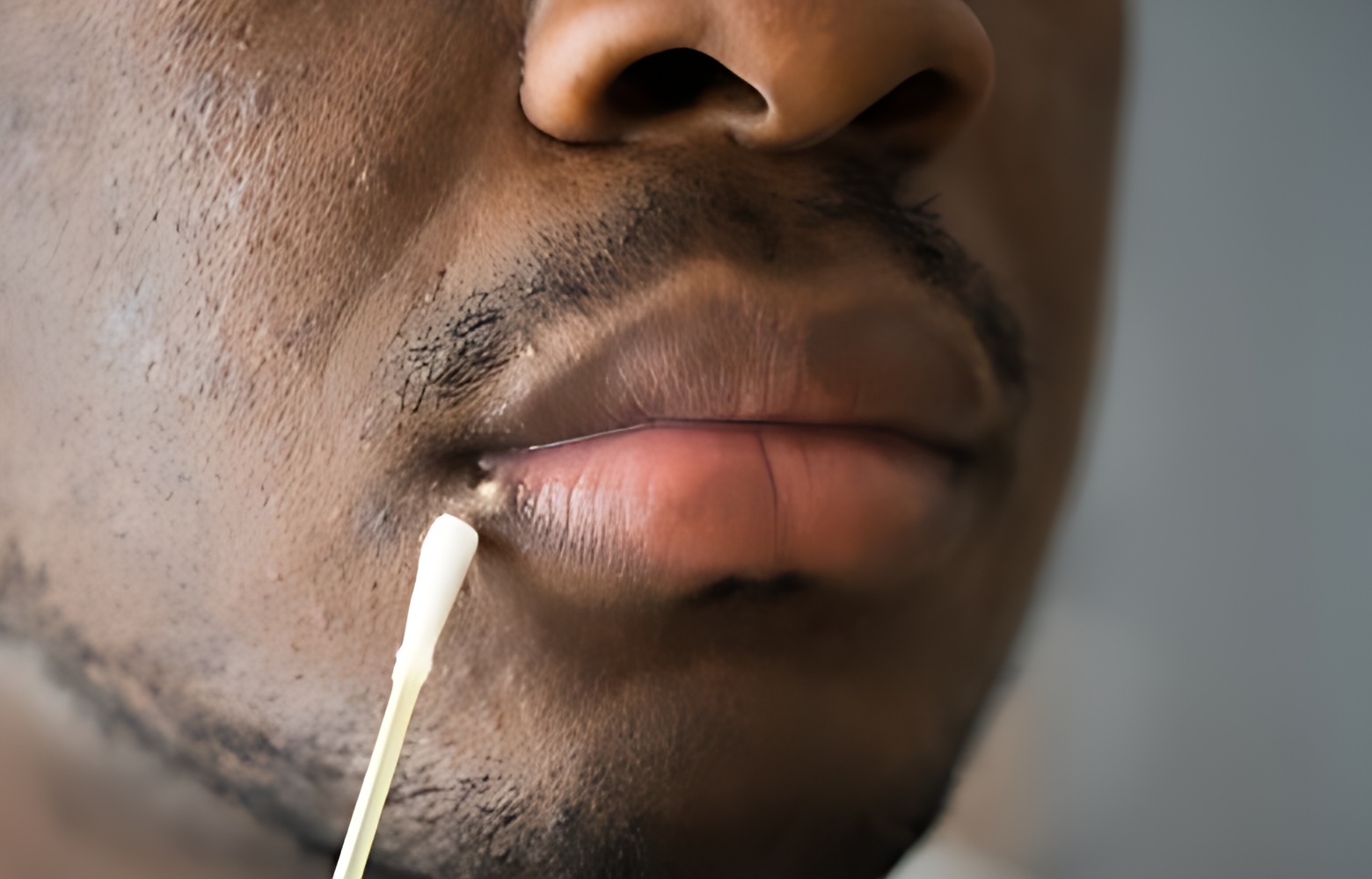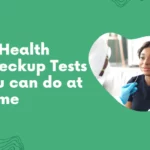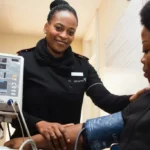Have you ever suddenly developed a noticeable, sometimes painful sore on your lip or around your mouth? It’s something that is quite common. These unwelcome visitors, known as cold sores (or fever blisters), affect men, women, and even children.
Despite how common cold sores are, misconceptions abound. A popular belief in Nigeria links them to malaria, suggesting they appear during recovery. However, this isn’t true. Let’s clarify what cold sores really are, what causes them, and how to manage them.
What Exactly Are Cold Sores (Fever Blisters)?
A cold sore is typically a small, fluid-filled blister (or cluster of blisters) appearing on or around the lips and mouth. Often, there’s a preceding sensation, typically tingling, itching, or burning, before the blister forms. After appearing, the blisters usually weep, crust over, form a scab, and heal within one to two weeks, though they can be uncomfortable and cosmetically bothersome.
The Real Cause of Cold Sores: Herpes Simplex Virus (HSV-1)
The primary cause of cold sores is the Herpes Simplex Virus type 1 (HSV-1). It’s important to understand this: cold sores are caused by a virus, not by malaria or simply having a fever. HSV-1 is highly contagious and spreads easily through direct contact, such as:
- Kissing
- Sharing utensils, cups, or straws
- Sharing towels
- Sharing lip products (lip balm, lipstick, gloss)
- Close skin-to-skin contact
How Can You Get HSV-1?
Many people contract HSV-1, often during childhood, without even realizing it. Once infected, the virus travels to nerve cells in the face (specifically the trigeminal ganglion) where it lies dormant (inactive), potentially for years. You can have HSV-1 and show no symptoms.
An outbreak, leading to the development of a cold sore, occurs when the dormant virus is reactivated or “triggered.”
What Triggers Cold Sore Outbreaks?
Various factors can wake up the dormant HSV-1 virus:
- Stress: Both emotional and physical stress are common triggers.
- Illness: Infections like a cold, flu, or fever can trigger an outbreak. This is likely the source of the confusion between malaria and cold sores or fever and cold sores – the illness acts as a trigger, not the cause.
- Fatigue: Being run down can lower your immune defenses.
- Hormonal Changes: Menstruation or menopause can be triggers for some women.
- Weakened Immune System: Conditions or medications that suppress the immune system.
- Exposure to Sunlight or Wind: Strong sun or harsh weather can sometimes trigger cold sores.
- Injury to the Skin: Trauma near the lips can occasionally trigger an outbreak.
Preventing the Spread of HSV-1 and Cold Sores
Since HSV-1 is contagious, especially when blisters are present:
- Avoid kissing or close facial contact with others when you have an active cold sore.
- Wash hands thoroughly and frequently, especially after touching a cold sore.
- Do NOT share personal items like utensils, cups, towels, razors, or lip products.
- Be cautious with babies. Avoid kissing them on the lips (this is crucial for preventing neonatal herpes, a serious condition).
- Consider using condoms or dental dams during oral sex, as HSV-1 can potentially be spread to the genitals (though HSV-2 is the more common cause of genital herpes).
Treatment and When to See a Doctor
Most cold sores heal on their own. Over-the-counter antiviral creams or ointments might offer some relief if applied very early. However, if you experience frequent, severe, or persistent outbreaks, or if they spread near your eyes, consult a doctor. Prescription antiviral medications (like acyclovir) can help manage outbreaks more effectively.
Testing for Herpes (HSV-1 & HSV-2)
Worried about cold sores or your potential exposure to Herpes Simplex Virus? You can get tested. Blood tests can detect antibodies to both HSV-1 and HSV-2, indicating past exposure. Get clarity on your status. Book a confidential Herpes Simplex I and II test with Healthtracka.
Frequently Asked Questions
1. Can You Have HSV-1 and Never Get Cold Sores?
Yes. While the HSV-1 virus remains in your body for life after infection, many people never experience an outbreak or only have one initial outbreak. Others may have recurrent cold sores periodically throughout their lives.
2. How Long Do Cold Sores Last?
In otherwise healthy individuals, a typical cold sore outbreak clears up within 7 to 14 days without leaving a scar.




